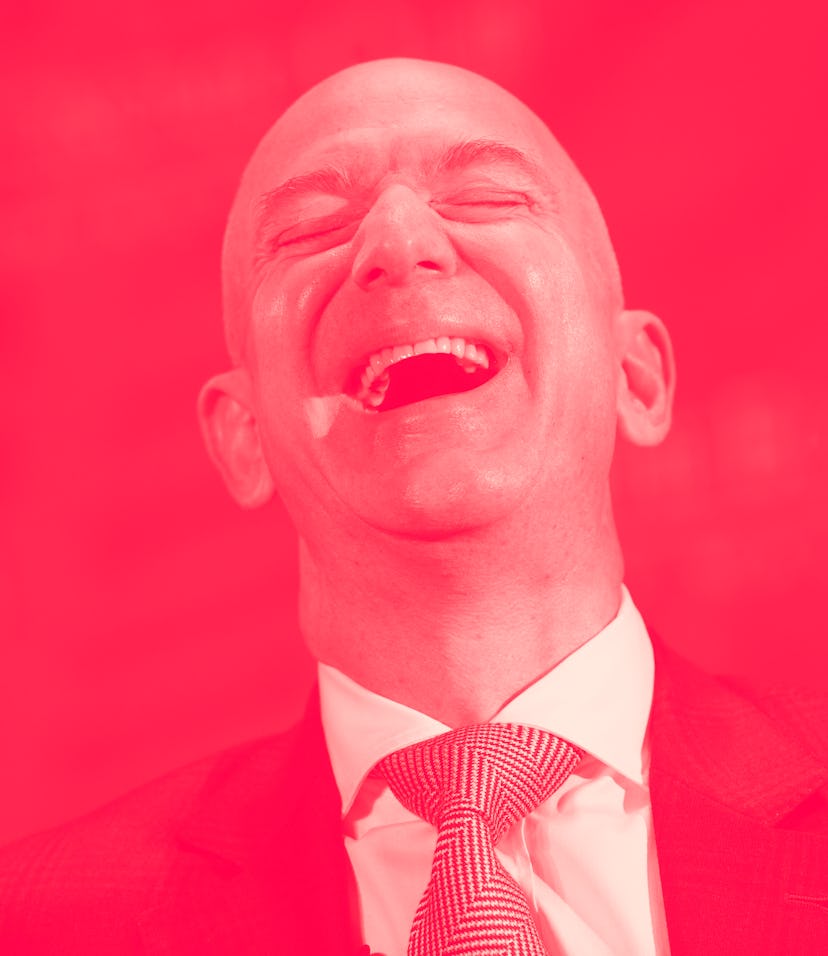Culture
Shocker: Amazon succeeds by overwhelming and copying the competition
A new Wall Street Journal report investigates the myriad underhanded ways Amazon defeats and devours small businesses.

At this point, it’s a well-documented fact that Amazon’s surplus of cash is matched only by its massive corporate greed. Still, stories of the largest company in the world’s underhanded techniques of market domination manage to horrify us every so often — like those in a recent report from The Wall Street Journal.
Amazon’s roots as an online bookstore have all but faded from cultural consciousness. Now Amazon is the anything-you-need site: just a few clicks, 48 hours (or so) of waiting, and everything you desire shows up in an Amazon-branded box on your doorstep. It’s a luxury — and, during pandemic-stricken times, a necessity — made possible by the internet and by sheer force of gluttony.
Copy and crush — WSJ’s report details many instances of Amazon’s unsavory business practices. Perhaps one of the most illustrative is the tale of Pirate Trading LLC, an audio-visual equipment company that got its start by selling on Amazon.
Pirate Trading sold tripods in excess of $3.5 million on Amazon about a decade ago. Then owner Dalen Thomas noticed in 2011 that Amazon had created a similar-looking tripod under the AmazonBasics label. Thomas ordered one of the tripods and found it had been produced by the exact same manufacturer Pirate Trading had been using for years.
Amazon priced its version of the popular tripod below what Thomas paid for the manufacturer to make Pirate Trading’s version — meaning it would have been impossible for him to beat Amazon’s price without losing money on the product.
Then Amazon suspended the Pirate Trading tripod, alleging the product had “authenticity issues.” By 2015 Amazon had suspended the entire line of products to which the tripod belonged. By the time the suspension had ended, Pirate Trading was just a fraction of its former self, Thomas said — so he’s moved into real estate instead.
Too big to fail — Similar stories abound. Amazon isn’t afraid to use a search-and-destroy tactic to expand whenever possible. This is where the company thrives — worming its way into legal loopholes (Amazon’s stance is that its tripod didn’t violate any intellectual-property rights) and using them to crush the competition.
Amazon CEO Jeff Bezos is now the richest person in the world. In little more than two decades, his business has grown exponentially — to a point where Amazon can decimate the competition with a snap of its lengthy fingers. Small businesses — even those that utilize Amazon and therefore contribute to its wealth — are expendable. And those smaller companies have no way to fight back, at least not in a meaningful fashion.
We’re just now reaching a point where the federal government has noticed Amazon’s dangerous monopolizing power — it’ll be a while longer until we see any decisions on that front. And, in the meantime, Amazon will continue to use its sheer size to devour small businesses whole.